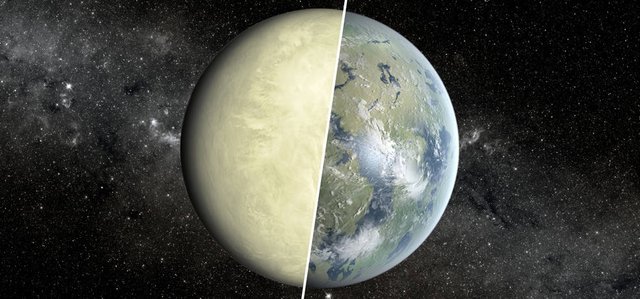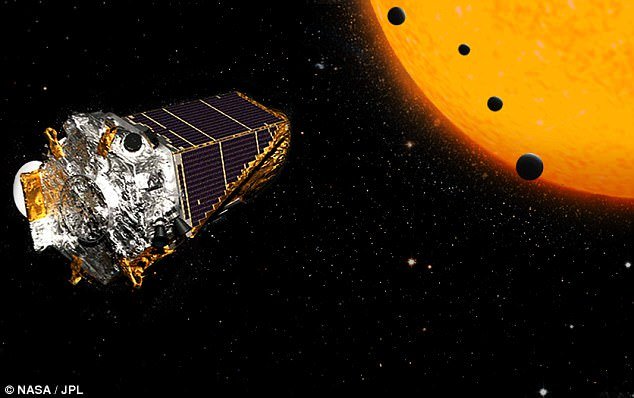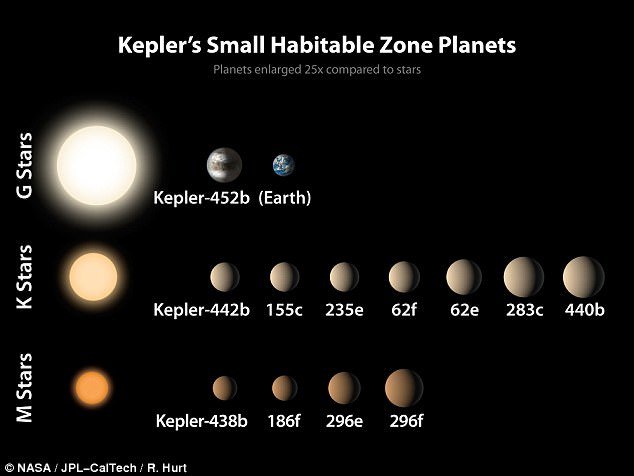Hello Steemians!! Today I bring my new post on "NASA Will Make MAJOR Alien-Hunting With Google Artificial Intelligence : The Search of Habitable Planet". Over the years, various theories have been presented by men and women of science that seek to explain what it is that governs all forms of matter and energy and why these things behave the way they do. With so many of these postulations, it has become a major objective of the scientific field of physics to perhaps combine all existing theories and laws about the universe and unify them into a single and cohesive “theory of everything.” Please go through it to know more about it.

Whenever NASA makes a huge announcement, it’s something worth paying attention to and this time NASA is making a major announcement WITH Google surrounding something they discovered from their Kepler telescope which is used to locate exoplanets. The reason Google is involved is because the discovery also utilized Google's machine learning software.
Where did everything come from? This is perhaps the biggest mystery that science has been striving to answer for decades, if not centuries – how the universe came to be. Mankind’s most curious minds have been yearning to figure out what it is exactly that keeps the universe going as it does now and what is behind the creation of potentially millions of planets and clusters of stars residing within many galaxies.

Kepler Telescope :
The Kepler mission has spotted thousands of exoplanets since 2014, with 30 planets less than twice the size of Earth now known to orbit within the habitable zones of their stars.
Launched in 2009, the satellite has helped in the search for planets outside of the solar system that orbit within the habitable zone of their star.


The next steps in the search for distant life include looking for true Earth-twins -- Earth-size planets orbiting within the habitable zones of a sun-like star -- and measuring their chemical compositions. The Kepler Space Telescope, which simultaneously and continuously measured the brightness of more than 150,000 stars, is NASA's first mission capable of detecting Earth-size planets around stars like our sun.

The habitable zones is the belt around a star where temperatures are ideal for liquid water -- an essential ingredient for life as we know it -- to pool on a planet's surface. Earth lies within the habitable zones of our star, the sun. Beyond this habitable zones, a planet would probably be too cold and frozen for life (though it's possible life could be buried underneath a moon's surface). A planet lying between a star and the habitable zones would likely be too hot and steamy.
To determine the location of a star’s habitable zones, one must first learn how much total radiation it emits. Stars more massive than our sun are hotter, and blaze with radiation, so their habitable zones are farther out. Similarly, stars that are smaller and cooler sport tighter belts of habitability than our sun. For example, the Super Earth planet called Kepler-62f, discovered by Kepler to orbit in the middle of a habitable zones around a cool star, orbits closer to its star than Earth. The planet takes just 267 days to complete an orbit, as compared to 365 days for Earth.
References :
CONTENT SOURCE : NASA: Link
CONTENT SOURCE : NASA: Link
CONTENT SOURCE : YOUTUBE: Link
CONTENT SOURCE : YOUTUBE: Link
CONTENT SOURCE : CBC: Link
CONTENT SOURCE : UNILAD: Link
I hope you enjoyed learning about "NASA Will Make MAJOR Alien-Hunting With Google Artificial Intelligence : The Search of Habitable Planet!!". If you love dreaming and learning science then please follow me, @tech-mac

Hi, I found some acronyms/abbreviations in this post. This is how they expand:
Downvoting a post can decrease pending rewards and make it less visible. Common reasons:
Submit
Nice article, I always wonder If life is possible on earth than there must other planets too. But never seen a solid proof of that, maybe its good that way only. NASA is on hunt for aliens sounds interesting, better be prepared. :)
Downvoting a post can decrease pending rewards and make it less visible. Common reasons:
Submit